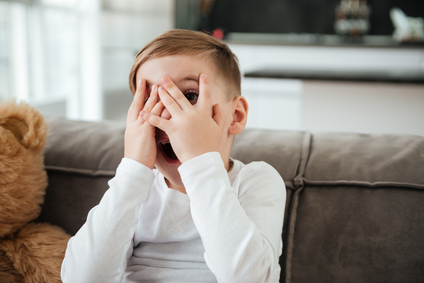Anxiety can be challenging to deal with. This can be especially true for children who experience anxiety. Since anxiety can present differently in children than in adults, it can be hard for parents to recognize at times. Anxiety in children can be effectively managed when you understand the symptoms and seek out appropriate treatment.
Types Of Anxiety Children Can Experience
Anxiety in children is similar to anxiety in adults. There is usually fear and worry about something future-oriented with an uncertain outcome. Anxiety is a normal part of the fight-flight-freeze response that helps protect you from danger. However, it becomes problematic when this response occurs in situations that are not dangerous. Children can experience a generalized feeling of nervousness and worry. They can also experience phobias where anxiety occurs in relation to a specific trigger, such as thunderstorms. Some children have panic attacks or exhibit obsessive-compulsive behaviors. Separation anxiety, which is developmentally appropriate in toddlers, can be more difficult to manage in older children who won’t sleep alone or leave a parent’s side. Children can have anxiety in social situations. They can also worry about pleasing parents and teachers and can be very hard on themselves when they make a mistake.
Symptoms Of Anxiety In Children
Symptoms of anxiety can be different for everyone. Some children will express typical worry, fear, panic, and avoidance. For other children, the symptoms can be very different. In some children it is expressed as irritability or even anger. Other children have a lot of physical complaints. They may have frequent stomach aches, headaches, and complain about feeling too sick to do certain things. Compulsive behavior is another way that it can manifest in children. Some children have nightmares and have trouble being alone. Children who have trouble completing tasks because they fear making a mistake may also have anxiety.
Causes Of Anxiety In Children
While an exact cause of anxiety in children is unknown, there are some things that can make a child more likely to develop it. Some children are born with a more anxious, perfectionistic, or shy temperament. Children with ADHD or Autism are more likely to experience it as well. COVID-19, social distancing, and online learning can cause or increase symptoms of anxiety in children. If a parent struggles with anxiety, their child may pick up on their anxious behavior and respond to certain situations in a similar way. They could start responding to their everyday environment with more fear and worry. A child who experiences a traumatic event can also become anxious that it may happen again. This can include the death of a loved one, an accident, or even seeing someone else hurt.
How Anxiety Impacts Children
Anxiety can have a negative impact on a child’s ability to function effectively. Fear and worry can cause them to miss out on important activities. Sometimes they start avoiding people, places, and things that they once enjoyed. Physical complaints that often occur in children with anxiety can perpetuate this avoidance. This actually reinforces the anxiety and creates an avoidance response. Children may be too afraid to try new things and to venture out of their comfort zone. Since it can show up as irritability and anger, children can experience confusion and shame about their feelings and behaviors. Anxiety can lead to problems at school, in their social environment, and at home.
What Can Parents Do
Parents can help their child manage anxiety in a number of ways. You can model healthy ways for your child to respond to their anxiety. Practice breathing techniques and meditation with your child. Listen to your child’s experience and help them name their feelings. Normalize their feelings and encourage them to face their fears. Although it is natural to want to help your child avoid things that cause anxiety, doing this actually reinforces the fear. When children are able to face their fears, they can create new experiences and their fear and discomfort naturally decrease. Let your child know that their anxiety is normal and okay, and that they can handle it and not let it stop them from living their life.
Treatment For Anxiety In Children
If anxiety is having a negative impact on your child’s emotional well-being, there are treatment options available. Cognitive Behavioral Therapy (CBT) is an effective treatment to help manage anxiety. CBT can help children alter distorted thought patterns that lead to unwanted behaviors. A component of CBT, exposure and response therapy, helps children decrease anxiety related to a specific trigger through gradual exposure. Exposure therapy is especially effective in the treatment of phobias and separation anxiety. Medication can also be used to help children manage their anxiety.
There is help available if your child is struggling with anxiety. Therapy can teach your child effective coping strategies. This way your child can manage their anxiety so it doesn’t have a negative impact on their emotional well-being.



